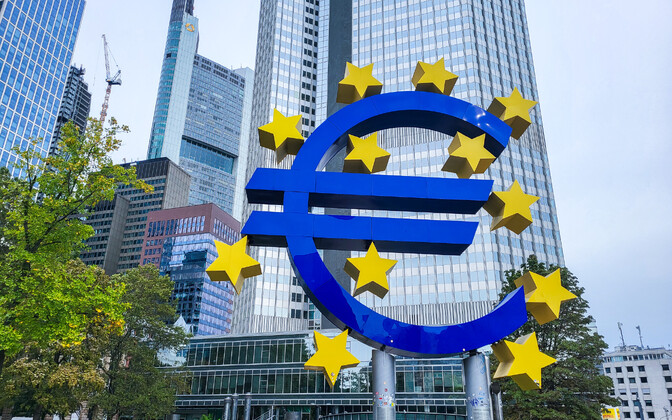
The European Union, while it is not likely to commandeer immobilized Russian money outright, is making progress on a proposed windfall tax to be applied to the profits generated by frozen Russian central bank assets, Bloomberg reports. The proceeds from this tax would be put towards aid to Ukraine.
Some €3 billion in frozen Russian assets is currently held by Euroclear alone.
Founded in 1968 as part of J.P. Morgan & Co. at a time when the eurobond market was continuing to develop, Euroclear is a Belgium-based financial services company which deals with the settlement of securities transactions and as such is one of two European international central securities depositories.
In Estonia, where frozen Russian assets worth about €30 million are being held, a bill is being processed at the Riigikogu which would allow these assets to be freed up in order to help Ukraine, given that the vast damage done to that country is the result of Russian military action.
However, doing so requires quite a complex negotiation of international law, and international treaties also required will lag a year or two behind this, one senior foreign ministry official told “Välissilm” earlier this week
In this light, the proposed EU-wide windfall tax on Russian assets earnings, in the form of interest etc., is a compromise.
Bloomberg says EU foreign ministers gave their political blessing to the windfall tax on Monday, while it will be discussed later this week at official level, sources say.
The EU’s foreign affairs service proposed a multi-step process last year, one which would initially identify the relevant assets and set out an action plan whereby central securities depositories holding the funds would be instructed which steps they need to take.
Those steps would outline how a windfall tax is applied to the profits generated by the frozen assets, while the proceeds would transferred to the EU’s budget to use for Ukraine, minus expenses and national taxes.
On the other side of the Atlantic, the U.S. has, Bloomberg says, recently signaled a possibility of being open to seizing frozen Russian assets outright.
Nonetheless, from some EU quarters, concerns have arisen that the above windfall tax may harm the euro’s stability.
Belgian Finance Minister Vincent Van Peteghem noted that the broader option of seizing assets “cannot impact the financial stability of systemic institutions such as Euroclear,” and expressed concerns over the legal implications of such a move.
At the same time, “I am convinced that we can move forward with this file,” Van Peteghem said, referring to the windfall tax proposal.
Belgium currently holds the rotating presidency of the EU, and will be handing over to Hungary in the second half of this year.
Several unnamed sources including those from Germany also raised the legality issue, while a German foreign ministry spokesperson said that country’s official position is to ensure legal certainty so that the stability of financial markets is guaranteed.
Nevertheless, High Representative of the Union for Foreign Affairs and Security Policy Josep Borrell told reporters on Monday that progress had been made on the windfall tax during a meeting of the bloc’s foreign ministers, and that discussions will continue.
Ukraine’s allies broadly agree that Russia needs to pay for the damage its war has caused, Bloomberg reports.
The EU, the G7 plus Australia have between them frozen about €260 billion ($283 billion) in Russian central bank assets in the form of securities and cash; over two-thirds of that is immobilized inside the EU.
The majority of the EU-based assets are held by the clearing house Euroclear, where they earned about €3 billion in interest profits last year.
In a separate but related matter, debate over aid for Ukraine has hit a critical juncture, Bloomberg says, after questions have arisen over its immediate needs.
Around US$100 billion in aid remains stalled by political processes in Washington and Brussels.
Meanwhile a mechanism which would override the immunity of states and would utilize up to €300 billion, as aid to Ukraine, has been showcased to U.S. Secretary of State Antony Blinken by his British counterpart, Foreign Secretary David Cameron.
—
Follow ERR News on Facebook and Twitter and never miss an update!





